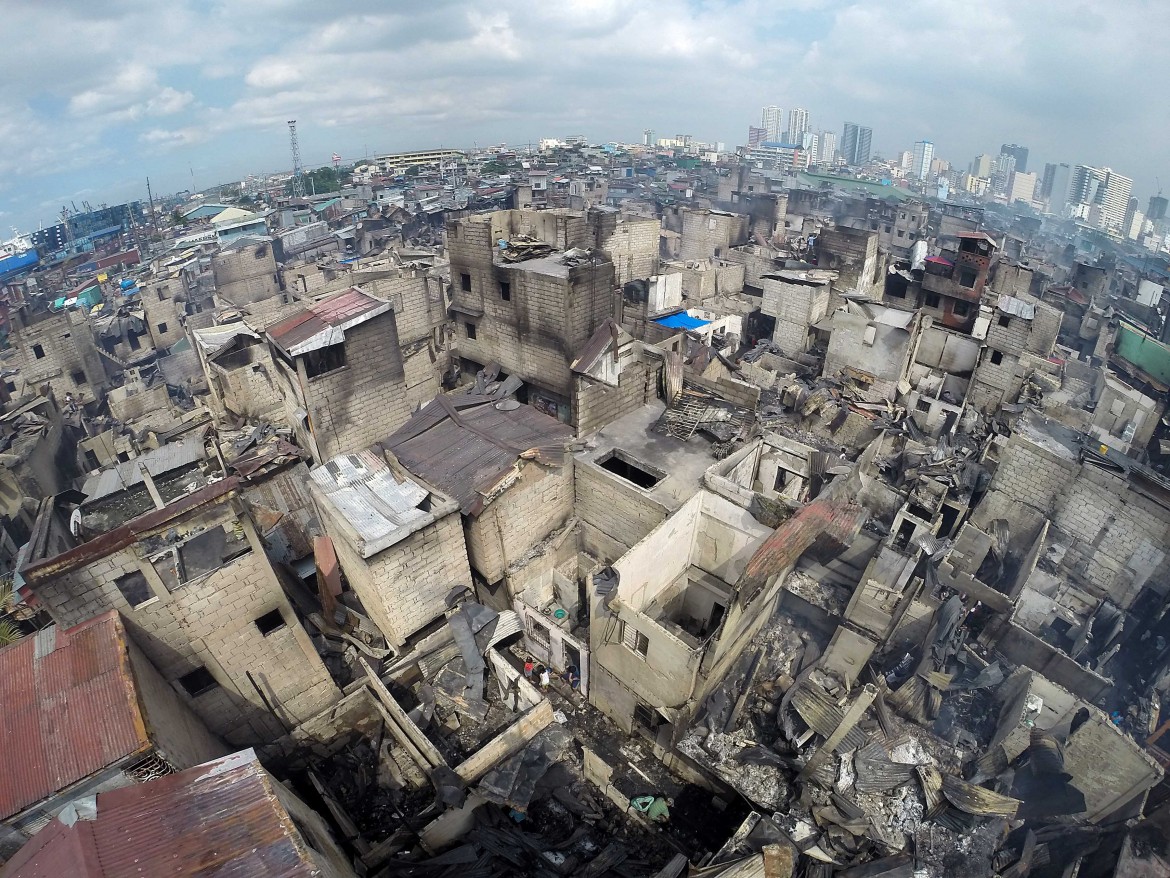Report
Inequality soars while the poor pay proportionally higher taxes
One percent of people own nearly 50 percent of the aggregate net wealth of the planet. As their riches increase, the rate of poverty reduction has slammed on the brakes.

“Public Good or Private Wealth” is the title of the Oxfam Report on the year 2018, which, published on the eve of the World Economic Forum in Davos, is once again shining a spotlight on the true emergency of our times: the rapid growth of inequality in the world. The incomes of billionaires are increasing at a staggering rate, while more and more people are sinking into poverty.
Between 2017 and 2018, the wealth of 1,900 billionaires has increased by more than $900 billion (12 percent), at a rate of over $2.5 billion a day. Meanwhile, the wealth of the poorest part of the population has plummeted by 11 percent. Three and a half billion people are living on just over $5 per day; 2.4 billion are in a condition of “extreme poverty,” mostly concentrated in sub-Saharan Africa and South Asia. Men own 50 percent more wealth than women, who, on average, earn 23 percent less than their male colleagues.
What about the 1 percent? They’re doing very well indeed and now own almost 50 percent of the aggregate net wealth of the planet. This shocking figure is matched by an epochal slowdown in the rate of poverty reduction. Between 2013 and 2015, the annual rate of poverty reduction has dropped as much as 40 percent compared to the average during the years 1990-2015, according to the World Bank.
The reasons for this scandalous distribution of wealth are not only the changes in the structure of capitalism—which has been developing its predatory features and increasing its financial component over the years—but, first and foremost, the unfair distribution of the tax burden between the social classes. As a proportion of their income, the poor are paying more taxes than the rich. According to Oxfam’s estimates, in the most developed countries, the maximum tax rate for the highest personal incomes has gone from an average of 62 percent in 1970 to 38 percent in 2013, while only 4 cents for every dollar collected in taxes comes from taxes on inheritances.
Among the European countries, Italy’s overall situation is beyond concerning. The numbers speak for themselves: the 5 percent of the super-rich own the same share of wealth as 90 percent of the poorer citizens. And that’s not all: in mid-2018, the 20 percent wealthiest Italians owned around 72 percent of the national wealth. The crisis has contributed to this situation, as not everyone had to foot the bill equally. There were even some who came out of the crisis richer than before: namely, the wealthiest 10 percent of the country, who have seen their net worth rise compared to 2007-2008. This is a social catastrophe, the poisoned fruit of the years of piecemeal dismantling of the welfare state constructed after WWII, of cutting back on “progressive” taxation, of privatizing services, and of cutting salaries in the name of competitiveness on the external market.
Does this polarization of wealth play a role in the current economic slowdown? Indeed, it does. Oxfam reminds us of this fact, speaking of the “economic damage” brought by inequality. In recent years, more taxes and less income for the poorer sections of the population, together with the reduction of the tax burden at the top of the pyramid, have clipped the wings of the “real economy,” encouraging the movement of large capital into financial instruments.
Low growth and social inequalities: these are two “interconnected” phenomena, since the weakness of the middle class and the lingering poverty of the working classes do not support higher consumption, the factor on which the economic growth in advanced capitalist societies has always largely depended.
And the problems go deeper than that. The downward movement of a significant portion of the middle class, which can be identified with some segments of the salaried labor force—namely, the most qualified, skilled and unionized—has meant that these people are investing less and less in their future (and, in the case of small businesses, in growing their business) and in the future of their children, because the cost of education has become higher and higher, unaffordable for many low-income families—just like the cost of access to healthcare.
The report showcases the imbalances between rich and poor countries, the gap between the rich and poor in each country, and social inequality as a cause of economic instability. Oxfam also offers solutions: a tax that would redistribute wealth in a more “progressive” way, and more public spending on health and education. In other words: the welfare state. As concerns our part of the world, it would be best if this could be built on a European scale.
Originally published at https://ilmanifesto.it/sempre-piu-disuguali-e-il-fisco-favorisce-i-ricchi/ on 2019-01-22
